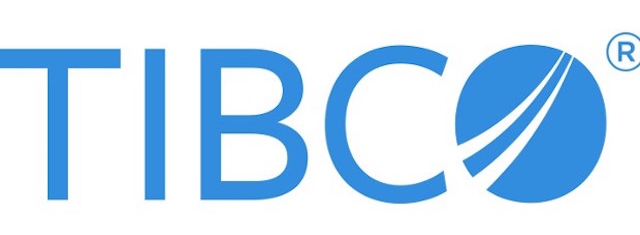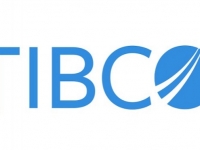Business
WILL OPEN BANKING CONVERT BANKS TO COLLABORATIVE WORK UNDER PSD2 ?
MARK GREATOREX VP OF EMEA AT TIBCO EXPLA

TIBCO logo (Source: TIBCO)
USPA NEWS -
According to Mark Greatorex, VP Sales EMEA at TIBCO Software Inc., an international leader in integration, data analysis, and API management, the coming into force, on January 13, the revised Payment Services Directive (PSD2) is a new era in open banking. Indeed, by endorsing a switchover of power in favor of customers, they are now assured of controlling the data of their personal accounts. Even though the DSP2 was above all a contract of trust between a client and an organization, in the middle, many debates evoked the inexorable battle to come between banks and account holders. The success of such a contract should depend only on the ability of the various parties to act responsibly, in accordance with ethical principles ... But in this case, the discussions were exacerbated both by the level of compliance required and the complexity of the process, but most importantly, the real nature of the issue: the sensitivity and risks of sharing personal financial data with third parties.
COMPLIANCE AND INNOVATION : NEW INJUNCTIONS OF OPEN BANKING------------------------------------------------
Now, with APIs, customer information can flow into a vast and increasingly omni-channel environment: far beyond simple payment services, banks can now build a truly open marketplace to extend their offerings to new innovative services. However, in doing so, the potential for fraud increases exponentially and imposes on institutions new prerogatives: to establish a climate of trust and maintain a certain degree of credibility throughout the process, under penalty of incurring the risk of having their mark and their reputation suffer tremendous damage. A misstep that could be fatal in a saturated and hyper competitive market.
Whatever the weakest link in the security chain, it is not the third parties who will be held responsible, but indeed the bank with which the customer has entered into an agreement, signed a written consent authorizing the sharing of his data. Therefore, in this new banking era, the ultimate test for institutions is to reconcile compliance with the heavy legal provisions in force, with the levels of speed and agility now expected from their service offerings.
Knowing how to balance compliance and innovation raises the question of transforming the very culture of organizations. Since open banking is often defined as a collaborative model, this philosophy must be reflected in the teams approach. Indeed, establishing a relationship of trust with consumers requires a collective effort at all levels of the hierarchy.
SI OPEN BANKING OPENS THE GATE TO A CULYURAL REVOLUTION ?
Open banking thus implies new responsibilities within organizations, extended to a larger share of the workforce. Agents in contact with customers, for example, must be able to understand the new complexity of customer interactions. This requires knowledge about the rights of users; good ability to identify gaps in offerings; and in the event of a security breach, know how to communicate the relevant information on the subject as quickly as possible via the appropriate channels, in order to minimize the fallout.
This new legal framework requires a great deal of involvement on the part of the employees concerned, able to detect opportunities to offer better services, as well as to identify inconsistencies. The use of incentive bonus systems, rewards or penalties, will obviously help to cultivate such behavior, but these devices are only part of the solution. The goal is for employees to develop a form of personal responsibility that is both intuitive and intuitive, and understands their role in protecting their organization's data. This can not be achieved without significant, far deeper changes in the structure of organizations themselves, through more innovation, as well as a real commitment on the part of staff.
To meet these challenges, banks will need platforms that promote innovative and improved ways of working through more transparent business processes, intuitive integration and accessibility of knowledge. A key lever to increase collaboration, involve more employees, find solutions faster to problems, and minimize risk while improving operational performance.
Nevertheless, many organizations still struggle to achieve this goal. This is the unmistakable conclusion of a recent global survey conducted by the Wolters Kluwer business information group of banks in Europe, the Middle East, Asia-Pacific, and North America. These institutions place data management in the face of the eternal threat of uberisation by fintechs: their main challenge is precisely the integration and the creation of a homogeneous view of their data throughout the organization.
This is a reminder of how important it is to implement solutions that ensure that process descriptions and regulatory certifications are clearly articulated and presented through clear visualizations. Knowledge centers of best practices can also be created to ensure that all requirements for risks and regulations are met. In addition, changing customer behaviors involve less dehumanized interactions that are both more relevant and smarter. To be able to transform every opportunity when it presents, institutions will need information that is accessible and updated in real time, in order to identify relevant offers regardless of the channel.
Finally, in addition to data visibility and the ability of organizations to identify high-risk items and opportunities in the midst of a broad range of knowledge, the creation of new products is gradually becoming the weapon of choice for emotional intelligence that customers now expect in managing their finances.
ABOUT THE AUTHOR MARC GREATOREX VICE PRESIDENT OF TIBCO SOFTWARE FOR EMEA---------------------
Mark Greatorex has extensive expertise in the sales and marketing of IT solutions in Europe, Africa and North America. A member of the TIBCO team since the beginning of 2016, he has gained considerable experience in strategic sales and operational excellence in sales and marketing. He also masters direct and indirect sales models. Prior to joining TIBCO, Mark Greatorex has held various positions for organizations such as SAP and Microsoft, and has a proven track record in small and large organizations.
ABOUT TIBCO----------------------------------------------------------------------------------------------------------------------------------
TIBCO strengthens the digital enterprise by optimizing and accelerating decision-making and actions with TIBCO Connected Intelligence Cloud. TIBCO technologies interconnect people, systems, devices and APIs, capture data in real time, and increase business intelligence with analytics. Thousands of companies around the world trust TIBCO to deliver compelling customer experiences, boost operations and drive innovation. To discover how TIBCO is developing digital intelligence, visit tibco.com
Tibco Marc Greatorex Emea Psd2 Api Jedi Foster Payment Collaborative Work Banking Rahma Sophia Rachdi
Liability for this article lies with the author, who also holds the copyright. Editorial content from USPA may be quoted on other websites as long as the quote comprises no more than 5% of the entire text, is marked as such and the source is named (via hyperlink).







